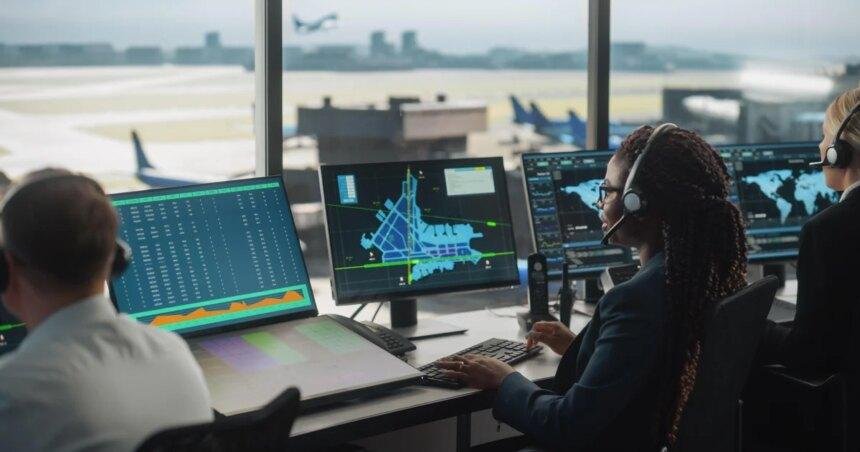Air Traffic Controllers Urged to Maintain Operations Amid Ongoing Government Shutdown
As the U.S. government shutdown enters its second week, the National Air Traffic Controllers Association (NATCA) has issued a directive to its members, emphasizing the importance of continuing their duties. The union, which represents over 20,000 air traffic controllers and aviation safety professionals, has warned that any failure to report for work could result in termination.
Essential Workers in a Time of Crisis
The Federal Aviation Administration (FAA) classifies air traffic controllers as essential personnel, meaning they are required to work during government shutdowns without immediate pay. This classification underscores the critical role these professionals play in ensuring the safety of air travel. According to NATCA, participating in any job action during this period could jeopardize not only individual careers but also the union’s credibility and its ability to advocate for its members effectively.
In a message to its members, NATCA stated, “Air traffic controllers and other aviation safety professionals take their responsibility to protect the safety of the flying public very seriously. Participating in a job action could result in removal from federal service.” The union’s leadership has urged members to maintain professionalism and solidarity during this challenging time.
Historical Context of Government Shutdowns
The current shutdown is reminiscent of previous federal funding impasses, notably the 34-day shutdown from December 2018 to January 2019. During that period, approximately 10% of Transportation Security Administration (TSA) workers called in sick, leading to significant delays in airport security screenings. This historical precedent raises concerns about the potential impact of the current shutdown on air travel, especially given the ongoing nationwide shortage of air traffic controllers.
The Broader Impact on Aviation Safety
The aviation industry is already grappling with staffing shortages, with reports indicating that over 90% of air traffic control towers across the United States are understaffed. This shortage has led to increased delays and operational challenges at airports nationwide. The current shutdown exacerbates these issues, as essential workers are forced to continue their duties without pay, creating uncertainty and hardship for many.
In a recent video message on TikTok, NATCA President Nick Daniels acknowledged the difficulties faced by union members during the shutdown. “This situation creates uncertainty and hardships for our members,” he stated, highlighting the emotional toll that prolonged government inaction can have on essential workers.
TSA Officers and the Essential Workforce
Similar to air traffic controllers, TSA officers are also classified as essential workers and are required to report for duty during the shutdown. The pressure on these employees has historically led to increased absenteeism and, in some cases, a departure from government service. Former TSA officials have noted that the stress of working without pay can lead to a decline in morale and productivity.
Legislative Developments
As the impasse in Congress continues, the Senate is expected to hold procedural votes on competing measures aimed at funding the government and ending the shutdown. The ongoing stalemate raises questions about the future of federal employees and the potential long-term effects on the aviation industry.
Conclusion
The current government shutdown poses significant challenges for air traffic controllers and other essential workers in the aviation sector. As NATCA urges its members to maintain their commitment to safety and professionalism, the broader implications of the shutdown on air travel and employee morale remain a pressing concern. With legislative efforts underway to resolve the funding crisis, the hope is that a resolution will come soon, allowing federal employees to return to work with the assurance of their livelihoods intact.











